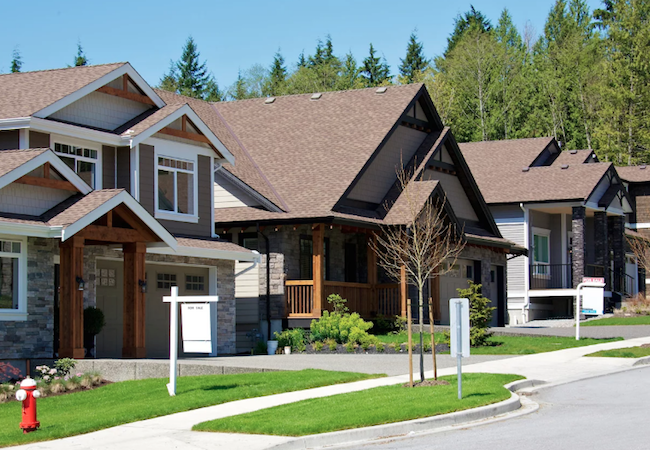We may earn revenue from the products available on this page and participate in affiliate programs. Learn More ›
Fewer Homes on the Market

According to Business Insider, one reason it’s more difficult than it used to be to find a starter home is that there are fewer homes on the market in all price ranges. In the fall of 2017, approximately 15 percent fewer homes were up for sale than at the same time in the prior year. Leading real estate site Trulia quantifies this trend for starter homes specifically, reporting that the number of available starter homes dropped nearly 44 percent between 2012 and 2016.
Related: 11 Awful Real Estate Photos—And How to Make Yours Great
Previous Starter Homes Are Now Rentals

During the recession and housing downturn of the previous decade, many homes went into foreclosure. As homeowners experienced a reduction in income, some had to let their homes go back to the bank or the mortgage company. MarketWatch explains how affordable homes were auctioned to real estate investors at bargain-basement prices and then turned into rentals. In more typical times, those homes would have been cycling back into the market as their owners moved on to larger homes.
Related: 11 Myths Home Buyers Should Never Believe
Trade-Up Homes Are Also in Short Supply

Even if they want to move out of their small, inexpensive homes to larger trade-up properties, homeowners today are finding it hard to do so because, like starter homes, trade-up homes are also in short supply. Trulia cites a decline of about 41 percent in the number of trade-up homes on the market from 2012 to 2016. Instead of selling their current homes when it’s time for a change, these owners are having to wait longer until suitable trade-up options become available.
Related: 8 Times to Accept a Lowball Offer
Lower Profit Margins for Home Builders

Not only are fewer existing starter homes reentering the market, but home builders are also opting not to construct new ones because the profit margin is less on a starter home than on a more expensive one. As the cost of building materials and the lots on which to build increases, developers are finding it more difficult to construct affordable new houses in the starter market. Realtor.com details how home builders are shifting their focus to constructing expensive homes for older buyers, who often have better credit and available cash.
Related: What 2,000 Square Feet Costs in America’s Most Budget-Friendly Cities
Long-Term Investment Considerations

Experts are beginning to ask whether buying a starter home is as good a financial decision as it was a couple of generations ago. According to real estate expert and Zillow contributor Brendon DeSimone, it might not be. When you buy a starter home, you’re assuming that you’ll be moving in a few years. Today, however, more first-time home buyers are looking for a house they can stay in longer so they can put down roots in the community. New homeowners are also wondering if the cost of the upkeep and repairs that are necessary to make some older homes livable is worth it in the long run.
Related: 12 Things Realtors Look For in Their Own Homes
Homeowners Opting to Remodel Rather Than Sell

Those who purchased homes during the housing crisis got some very attractive interest rates on their mortgages. According to an article in the Chicago Tribune, these homeowners are not eager to sell when that means buying new homes at higher interest rates. Instead, many who live in existing starter homes are opting to renovate to give their homes the space, style, and amenities they want rather than selling their homes and buying trade-ups.
Related: 10 Decisions Homeowners Never Regret
Personal Debt Making It Difficult to Afford a Mortgage

Your grandparents didn’t start out in life burdened by student loans. Today,however, with more students than ever attending college and skyrocketing tuition rates, millennials are often saddled with education debt that makes it difficult to afford starter homes. According to a Bloomberg
economist, student debt is “a major reason why millennials aren’t buying homes.” Heavy student debt could be responsible for as much as a 35 percent decline in the purchase of starter homes. Instead, millennials are renting longer while they’re paying off their debt and hoping to purchase more expensive homes in the future when their higher salaries allow.
Buyer's Guide

Ready to start looking for a home? Before you do, make sure you’ve done the proper research and planning. From attending open houses to negotiating the closing costs there are a lot of steps to buying a home. It helps to know some tips and lessons to make the tedious process a bit easier.

Practical Gifts They'll Love
Our editors take pride in their gift-giving skills—and these are their top suggestions for DIYers, plant parents, new homeowners, and more.

